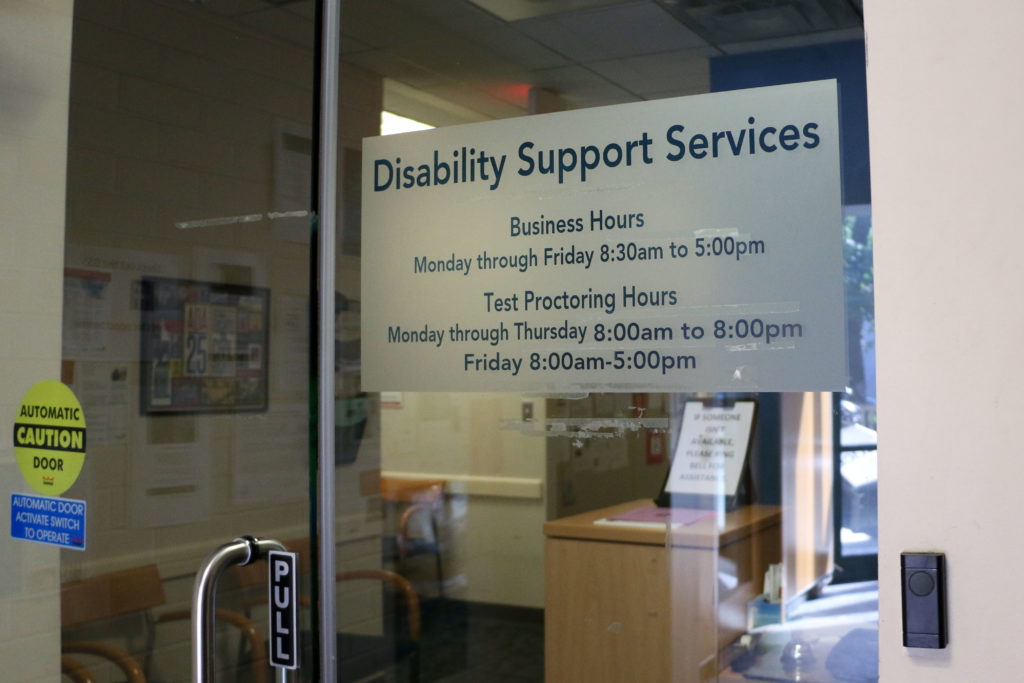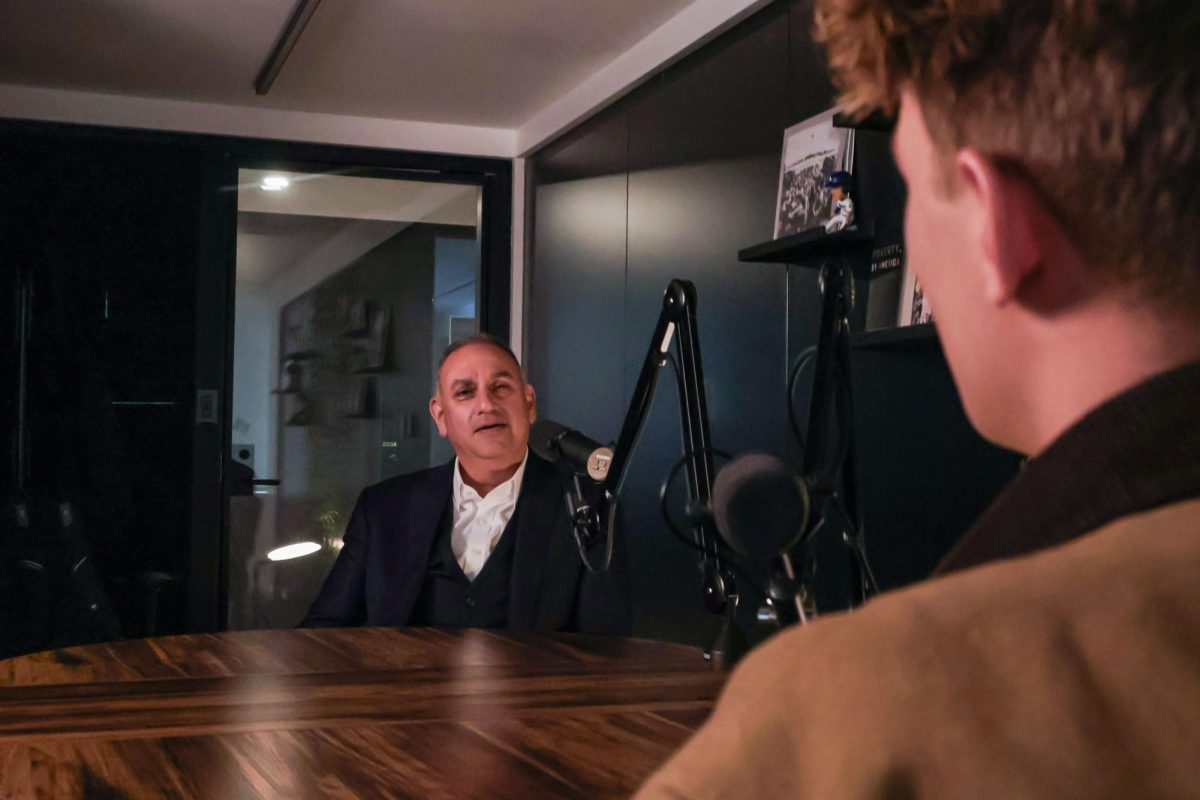Sophomore Madison Girault said she’s used Disability Support Services for accommodations since she was diagnosed with dyslexia at 18 years old, but online learning has thrown a wrench in her studies.
Girault, who is majoring in photojournalism, said she normally receives emails at least twice a month from DSS listing resources to succeed in class, but she has not received any communication since the semester started. She said completing tasks like discussion posts and reading assignments has caused her to tire more easily, and she hopes DSS staff will reach out to offer additional support or tips to aid online learning.
“Staring at computer screens for really long or reading a lot, which obviously teachers have been like ‘here’s a bunch of reading’ and doing these blog posting situations, I get so tired,” Girault said. “My brain works four times more than the average human when it comes to reading between the dyslexia and the eye tracking disorders. So it’s literally just been so much.”
Several students with DSS accommodations said the office has provided limited communication during the virtual semester, forcing them to ask professors for accommodations themselves. Students said they wish the office provided them with resources like closed captioning and guidelines for how to talk to professors about needing extra assistance with lectures or work.
“The lack of communication makes me feel like I don’t have support at GW,” Girault said. “And it’s very scary. In person, we got emails probably at least once a week, if not every other week. I had emails in my inbox all the time. Going from that to no emailing over the summer to none now – unless you email them – it definitely makes me feel very frustrated.”
“Disability Support Services, I guess could be better, but from my experience, you really didn’t get what you want from disability departments until you have connections.”
In the last few years, registration in the DSS office jumped nearly 40 percent under former Director Susan McMenamin. McMenamin left GW in January, and Alisa Major filled her place as the interim director.
Major said the office has seen an increase in accommodation requests from students who previously did not need the assistance for their transition to online. She said DSS is providing workshops this fall for students to stay on track of coursework and prepare for exams in addition to connecting students with academic offices like the GW Writing Center and Office for Student Success.
“DSS continues to provide academic and housing accommodations to students with disabilities who register with our office,” Major said in an email. “This fall we are continuing to provide the needed support – it just looks a little bit different in a virtual environment.”
Major said the office is educating more faculty this semester about the need for accessibility and Universal Design in Learning, which breaks down the learning barrier for students with accommodations by creating flexible lesson plans. She said the office has been working with professors to support students online by teaching techniques like subtitling presentations, which allows students to go back and review lectures.
“There has been a positive aspect to the transition to online learning,” Major said. “GW did a wonderful job when planning for the fall semester to get prepared to be able to provide an accessible, remote learning environment.”
But students say DSS has been “behind” this year in terms of communicating and connecting students with accommodations for online learning.
Freshman Shea Trimble said keeping up with professors’ presentations has been “challenging” because of her field vision loss in the left side of both her eyes, which makes it difficult to see the presentation and her notebook simultaneously. She said she has an auditory processing disorder, a hearing condition that causes problems processing sounds, but her professors post everything online so she can listen back to what she may have missed.
“My brain takes longer to process sound than it should,” she said. “And it’s worse online. So it’s hard to keep up with what people are saying, but at the same time, because of the legal blindness, it doesn’t really matter.”
Trimble said she requested that DSS staff send accommodation letters to her professors in August, but they weren’t submitted until three weeks into the semester. She said she told professors of her accommodations herself because she hadn’t heard from the office.
“I’m not sure if communication shortcomings are because of being online or not,” Trimble said. “My professors have been pretty good about it. DSS, I guess could be better, but from my experience, you really didn’t get what you want from disability departments until you have connections.”
Luana Kiwakana, a senior who experiences frequent migraines and flareups, said Zoom discussions have caused migraines, hurting her ability to focus. She said “very few” of her professors use closed captions in class, and she struggles to get work done during the allotted class time.
She said she has reached out personally to her professors to ask for assistance because she feels DSS has not adapted to assist students learning virtually. She said DSS staff have previously provided resources for students on how to talk to their professors about accommodations.
“At least what I’ve found is that when I am in person, I am better able to advocate for myself and I am better able to be physically present, listen, and that’s now going down the drain,” Kiwakana said. “It’s somehow that we’re expected to function fully like any other students online when online didn’t stop disabilities from existing.”








